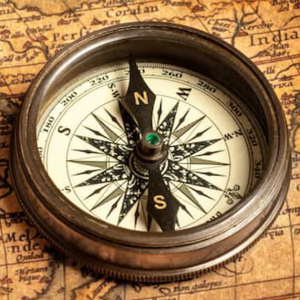Episodes

Saturday Sep 14, 2024
Saturday Sep 14, 2024
Enjoy this powerful teaching by CrossWalker Rev. Dr. Angela Barker-Jackson.

Sunday Sep 01, 2024
Sunday Sep 01, 2024
In the conclusion of this series, we look at what living the faith looks like in one frame. We are invited to follow Jesus, whereby saying yes means we will actually try to follow Jesus in order to experience the life and faith he enjoyed. This involves stretching our minds (lifelong learning), kneeling in service to others, standing for grace and justice, communing with God via personal and corporate spiritual disciplines, and connecting with each other in genuine, compassionate community. This teaching offers a lot of practical tips on how to pull this off. Check out the related blog for hyperlinked resources: https://www.crosswalknapa.org/blog/2024/9/1/faith-in-process-putting-it-all-together.

Sunday Aug 25, 2024
Sunday Aug 25, 2024
This teaching is all about the components of being connected to community and its' benefits, filled with lots of stories from CrossWalkers.

Sunday Aug 18, 2024
Sunday Aug 18, 2024
Jesus modeled and taught "life in God" - the epitome of faith. A key component of his practice was standing with and for grace in his time. What did he do? What did he instruct? What will we do in our time?

Sunday Aug 11, 2024
Sunday Aug 11, 2024
Want a faith that is vibrant like Jesus'? Try modeling your life and faith after his. This week, we talk about kneeling in service to others, taking time to think about motivations and what to do when serving no longer produces joy.

Sunday Aug 04, 2024
Sunday Aug 04, 2024
If you desire a faith that enhances your life by bringing everything together and also brings more shalom into the world, lifeline learning is required. This teaching offers a range of biblical stories offering insights on the learning process so that we might have a clue how to do it!

Sunday Jul 21, 2024
Sunday Jul 21, 2024
Associate Professor Jenny Matheny, Ph.D., Truett Seminary (Baylor) hits a home run with this teaching based on 1 Samuel 25:1-35 NRSVUE. Enjoy!

Sunday Jul 14, 2024
Sunday Jul 14, 2024
If you are a human being, you live with regrets. We will hold them our full lives. How much they hold us is in part up to us. Hopefully this practical teaching will help you live your human life, with regrets and all.

Sunday Jul 07, 2024
Sunday Jul 07, 2024
Jesus went back to his hometown and was rendered essentially powerless by the unbelief of people who were not willing to see him for more than he had been. This passage offers us a moment to learn about the process of transformation, so that we continue to grow in faith and not be the ones limiting the flow of the Spirit of God. This story also invites us to consider when it's time to cut bait, as Jesus did, when he realized shalom wasn't going to flow in Nazareth due to the obstinance of the townspeople.

Sunday Jun 30, 2024
Sunday Jun 30, 2024
Enjoy this incredibly rich, relevant story remembered from Jesus' life. May you reach for the tzitzit on the kanaph in pursuit of the sozo you want and the sozo you need!
